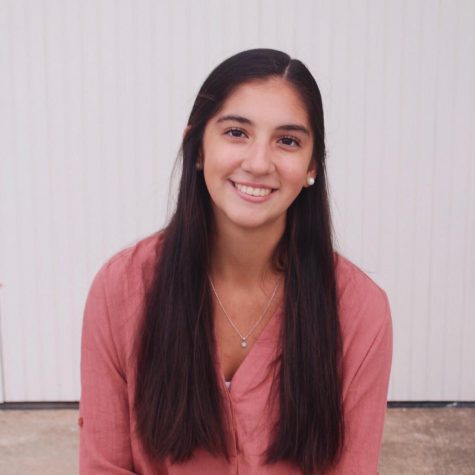
My passport expired earlier this year—on Jan. 31, to be exact. And though some voice within cautioned me against the danger in sharing my passport expiration date, I must establish context for the next (potentially sensitive) piece of information I plan to share. On Jan. 20, although I have no international travel plans for the foreseeable future, I made my way over to the retro ‘70s building that is my local New York USPS store to promptly renew my passport.
In essence, this decision was consistent with my innate need for preparedness in any situation. However, I also believe there was another force at play here. Namely, in thinking about the abundant loss and pain and frustration we’ve all experienced over the past year, I’ve begun to turn to transient sources of immediate happiness. In this spirit, I’ve found that nothing brings me greater joy than to plan, with great specificity and enthusiasm, countless months-long international travel expeditions. In the deep recesses of my overactive imagination, I’ve hiked Machu Picchu, visited Les Deux Magots in Paris and sunbathed on the shores of the Mediterranean.
I wouldn’t necessarily consider myself an optimist, and though some journalists have revealed generally positive timelines for the long-awaited “return to normalcy,” most European countries continue to prohibit the entry of U.S. travelers. Upon making this discovery, I considered the possibility of finally claiming my Colombian dual citizenship, a decision that would have made my father prouder than anything else I might go on to achieve later in life. Nevertheless, the long and tedious process, as well as the expensive cost, prompted me to consider other avenues for fulfilling my desire to travel—other than trying to enter European countries as a dual citizen.
Ultimately, the details of my itinerary are of little importance. What is significant to note here is the joy I experienced in creating this rough outline of possible international adventures. For example, thinking about backpacking through Europe, despite its immediate unlikelihood, generated an excitement and satisfaction that I would consider comparable to the real deal.
In fact, scholars across disciplines have conceded to the mental health benefits in developing vague plans for future experiences, even (or especially) amidst the uncertainty of a pandemic. As one researcher explains, future-oriented humans take solace in knowing that good things are coming. Such an assessment is both scientifically well-supported and readily intuitive: our innate tendency to look forward in time is made more pleasurable by the belief that the future will be, if not better than the present, at least enjoyable in and of itself.
Holding onto this belief has been especially essential to our emotional well-being as young people. As researchers have found, the circumstances of the pandemic disproportionately impact the mental health of 18-to-24-year-olds. While we struggle to maintain social relationships and cope with a feeling of lost time, we are liable to slip into a state of despair and disillusionment.
A few weeks ago, as we “celebrated” the one-year anniversary of the pandemic, I considered the number of times I’ve heard or—embarrassingly enough—used the word “unprecedented” over the past 12 months. Not only does the word encapsulate the abrupt nature of our drastic lifestyle change, but it also epitomizes a sense of ambiguity and doubt. Had we known the anticipated duration of our socially-distanced lives, how would our collective experience have differed? Indeed, the changing nature of this health crisis made it all the more important that we create positive visions of the future, whether the future we envisioned be near or far. Looking ahead, without establishing a firm attachment to our loosely-defined plans, served as a temporary panacea.
While I hesitate to default to the typical “tunnel” illustration, I believe this image is particularly effective in expressing our pandemic experiences. As we traverse this unfamiliar terrain, we have no way of knowing just when we will emerge from the darkness. From the time of the virus’s inception, scientists, journalists and commentators alike have provided estimates regarding the end stages of the pandemic. Today, though the presence of a vaccine has inspired optimism, countless questions remain. When will we achieve herd immunity? When can we finally stop wearing masks? When can we travel again? Over time, answers have shifted and likely will continue to do so, and despite the renewed sense of hope, we surely must remain cautious.
For us college students, unfortunately, a sense of growing restlessness can hinder our capacity for self-discipline. For one thing, the pandemic has radically compromised our ability to fully profit from our youth and independence. While teleworking parents have enjoyed added time at home with young children, most of us are likely unable to share in these sentiments, particularly as our precious time in college continues to pass us by. Our societal understanding of youth, which typically serves as a period for freedom, exploration and discovery, is incompatible with the restrictions of a global health crisis. For these reasons, we are especially apt to benefit from the practice of future-planning. In envisioning our own personal light at the end of the tunnel, we can extend our tolerance for the undesirable circumstances of the present day. Even if the ground shifts under our feet and the light moves farther away, we can continue to look toward this guiding vision.
With Vanderbilt recently announcing promising plans for the fall semester and the Global Engagement Office (GEO) resuming study abroad programs, our light has begun to shine slightly brighter. Our post-pandemic world no longer exists in a hypothetical sense. We can begin to foster a renewed sense of hope and enthusiasm for the future, even as we continue to exercise caution in the present. I, for one, am looking forward to the day I can finally book a flight and take a trip. Until then, living vicariously through online travel journals will just have to suffice.



